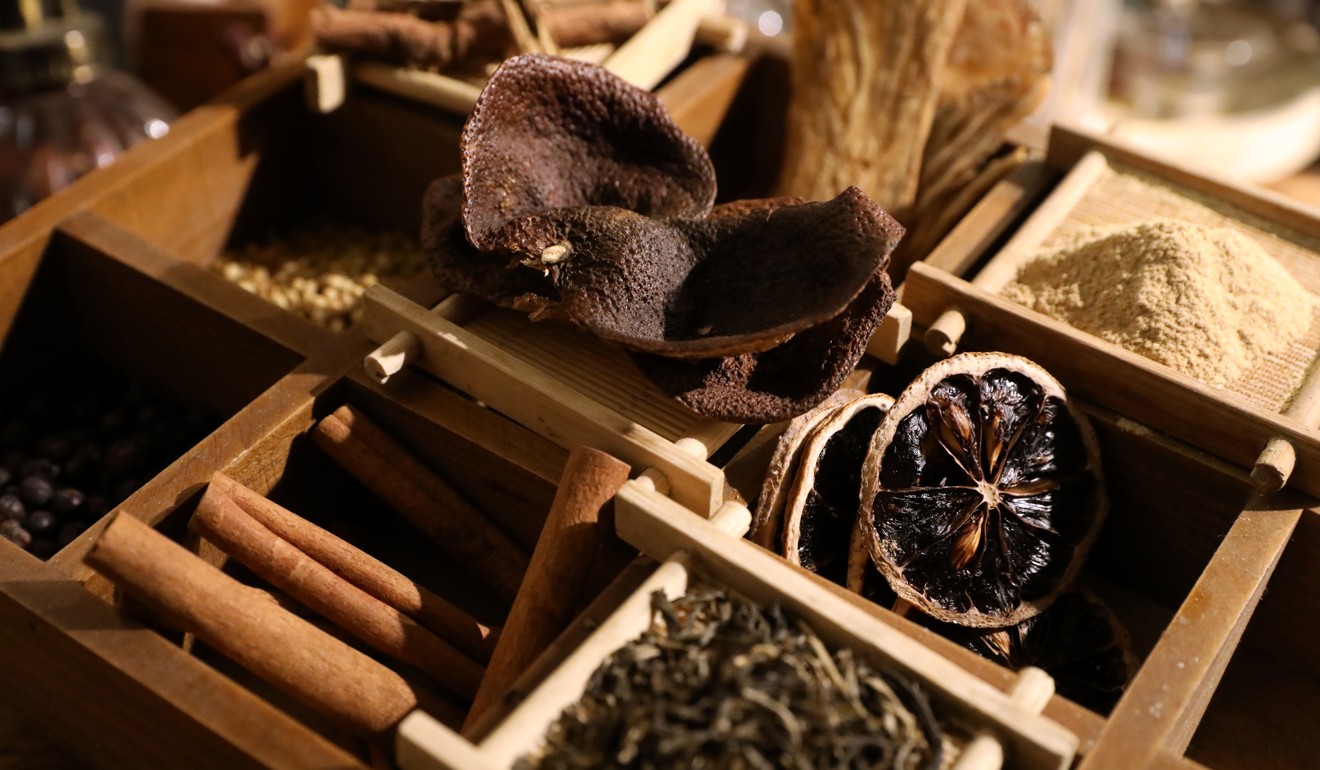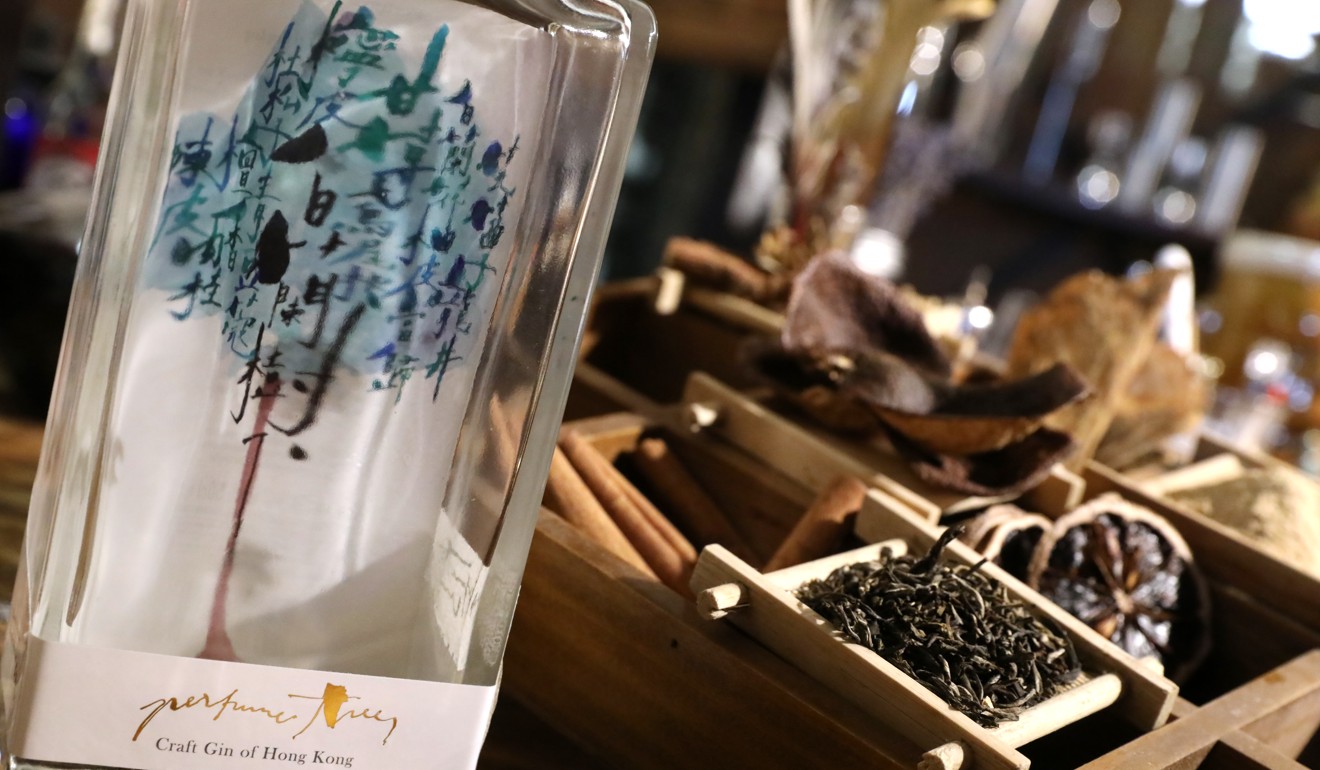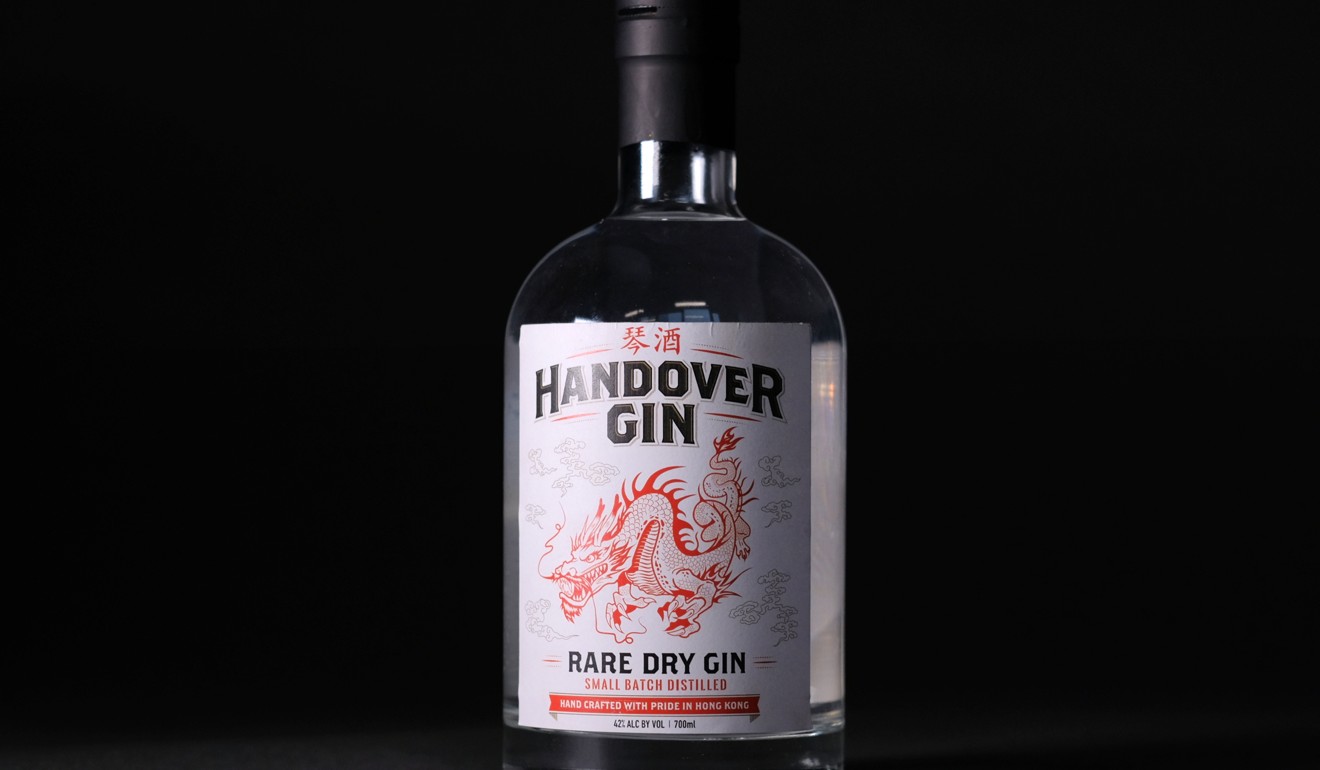
Can Hong Kong gin rival cognac from France, Scottish whisky or sake from Japan?
- Perfume Trees Gin, with its sandalwood and white champaca notes, and Handover Gin’s use of locally farmed ginseng, make them stand out
- Both companies are using the latest hi-tech equipment to make the best product
France has cognac, Scotland has whisky, Japan has sake, and the Netherlands has gin. What about Hong Kong?
That was the question mixologist Kit Cheung Yan-kit asked himself, and it prompted him and his business partner, Joseph Cheung, to make what they feel is a gin that represents Hong Kong. In a converted traditional Chinese ancestral hall in the outskirts of Tsuen Wan they have set up their “lab”, where they experiment with a number of local ingredients to create Perfume Trees Gin, which is now available in Hong Kong.
Calling gin-lovers – the liquor is making a comeback in cocktails
Kit Cheung, who has worked with Locofama, an organic-food restaurant in Sheung Wan, on creating cocktails with local products, wanted to go a step further and create a spirit that tasted like the city. What does Hong Kong taste like? For him the main ingredients have anecdotes attached to them.
His first thought was to have agarwood in the gin, as it is prized for its woody, yet fruity floral fragrance and is used to make incense. Hong Kong was the trading port for agarwood, and it is from this that the city earned its nickname Fragrant Harbour. While it was an apt ingredient to use, the cost is so prohibitive that he chose sandalwood instead.
For floral notes, Cheung considered many options. “Rosella has a slightly tart taste, but it’s more associated with India, while frangipani is more from Thailand or Bali,” he says. In the end they settled for white champaca, a fragrant flower from the magnolia family that he says has strong local roots.

“Locals remember seeing elderly ladies selling these white champaca, and back in those days it was easy for them to pick early in the morning from the tree and then sell the flowers, and make enough money to feed themselves,” he explains.
The taste of the gin has the sandalwood and white champaca notes as well as a hint of citrus from lemon and grapefruit peels. Mixed with tonic water and ice cubes, it’s a refreshing drink, especially during the summer. The fragrant spirit makes the name Perfume Trees Gin an apt one.
Aside from juniper berries from the Netherlands, coriander seeds, licorice and cinnamon, there’s also Chinese angelica wood, 15-year-old aged tangerine peel, and longjing, a green tea. “We experimented with puer tea, but it’s a very heavy flavour, while jasmine tea was too delicate and it actually clashed with the white champaca, so we settled on longjing tea,” he says.
Sacré bleu! France takes on Scots and Irish in whisky-making
The gin is presented in a rectangular glass bottle from France, and the label shows the ingredients in Chinese calligraphy on a green tree. Cheung says the packaging makes it a very Hong Kong product, one he hopes people will purchase as a souvenir or as a gift for friends overseas. It retails for HK$728 (US$93) a bottle.
Perfume Trees Gin is not produced in Hong Kong, but in the Netherlands, and Cheung has to ship the local ingredients there. While the process is tedious and expensive, Cheung feels the hi-tech equipment used helps make the gin a quality product.
Another spirit that will be available in the next few months – and this one is distilled in Hong Kong – is Handover Gin, made by Hong Kong Distillery founder Steven Newton. The 39-year-old is from New Zealand, where he has had a lot of experience making his own gin, bourbon, vodka and Irish cream at home, which is legal in the South Pacific island nation.

When he came to Hong Kong seven years ago to work in IT for banks, he was surprised to find that no one had produced a gin locally – until he found out the tremendous bureaucratic hurdles involved. Spirits have a high alcohol content, and the government has many safety regulations governing highly flammable products. These require a lot of paperwork, and inspections from the Fire Services Department.
For four years, Newton worked part time on this passion project with a consultant, and gradually put all the necessary pieces in place, from securing a proper site in Tsuen Wan with approval from the Fire Services Department, to buying a 100-litre custom artisan still, an apparatus to distil the ingredients into the spirit, to inspections from Hong Kong Customs and Excise Department.
While Newton had the technical know-how to make gin, coming up with the recipe for a Hong Kong gin was challenging.
China training sommelier army for global battle to make baijiu the new whisky
He wanted it to have ginseng in, but realised the medicinal root is very bitter. He experimented with 30 varieties, and finally settled on locally farmed ginseng to keep the taste consistent. The other 10 ingredients include ginger, fennel seed, clove, orris root, horny goat weed, Chinese cinnamon, and dried orange peel, along with juniper berries from Hungary.
“It took four years of experimentation,” says Newton, who asked a lot of people for suggestions of what flavours to include. The gin tastes very smooth, thanks to the use of New Zealand whey, and has some ginger and ginseng notes. “It’s not over botanical, nor does it taste like petrol,” he says with a smile.
Though it’s not yet on the market, Newton has entered Handover Gin in the Cathay Pacific Hong Kong International Wine & Spirit Competition, where it has won a silver medal for the past two years. They aren’t the first medals he has taken home from the annual contest: three years ago he won a bronze medal for a coconut rum.

Although Newton has attracted a lot of interest in his gin, he is crowdfunding on Indiegogo to enable him to keep full control of the product. The goal is to raise US$26,000, although with less than a month to go, he has a long way to go.
Newton shrugs and says that if he does not reach his targeted amount, he will fund the difference himself. He plans to sell Handover Gin for HK$495 a bottle, and give a proportion of the profits to saving the Chinese white dolphin, whose numbers are dwindling in Hong Kong waters and other habitats.
“It’s been a journey. I’ve learned a lot and met a lot of good friends along the way,” Newton says.


